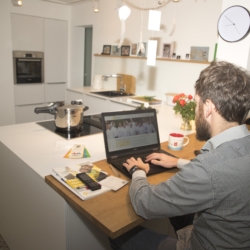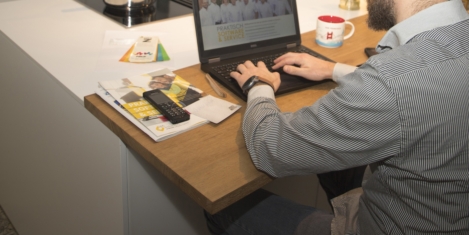To provide the best experiences, we use technologies like cookies to store and/or access device information. Consenting to these technologies will allow us to process data such as browsing behaviour or unique IDs on this site. Not consenting or withdrawing consent, may adversely affect certain features and functions.
The technical storage or access is strictly necessary for the legitimate purpose of enabling the use of a specific service explicitly requested by the subscriber or user, or for the sole purpose of carrying out the transmission of a communication over an electronic communications network.
The technical storage or access is necessary for the legitimate purpose of storing preferences that are not requested by the subscriber or user.
The technical storage or access that is used exclusively for statistical purposes.
The technical storage or access that is used exclusively for anonymous statistical purposes. Without a subpoena, voluntary compliance on the part of your Internet Service Provider, or additional records from a third party, information stored or retrieved for this purpose alone cannot usually be used to identify you.
The technical storage or access is required to create user profiles to send advertising, or to track the user on a website or across several websites for similar marketing purposes.
 The COVID-19 pandemic has accelerated the transition away from traditional workforce models, and 56 percent of companies are expecting to shift more of their roles to contingent, project or contract work as a result, according to a new report by Randstad Sourceright. (more…)
The COVID-19 pandemic has accelerated the transition away from traditional workforce models, and 56 percent of companies are expecting to shift more of their roles to contingent, project or contract work as a result, according to a new report by Randstad Sourceright. (more…)






 The Pensions Regulator might now have the power under current UK pensions legislation, to enter the private homes of employees when it is investigating their employer, if those employees are working from home. The current law has been in force since 2005 and it allows the
The Pensions Regulator might now have the power under current UK pensions legislation, to enter the private homes of employees when it is investigating their employer, if those employees are working from home. The current law has been in force since 2005 and it allows the 
 New research by
New research by 
 Is the workplace industry stuck in the past, in a 20th century model of how and where work is done? The separation of work and the rest of life during the Industrial Age has shaped the structures of modern life: the houses we live in, the offices, factories and shops we work in, and the transport networks that shuffle us from one location to another for different activities. It has also shaped the planning system, the institutional and financial structures of how places are designed and built, and perhaps most of all the mindsets of just about everyone involved in creating places to work and live.
Is the workplace industry stuck in the past, in a 20th century model of how and where work is done? The separation of work and the rest of life during the Industrial Age has shaped the structures of modern life: the houses we live in, the offices, factories and shops we work in, and the transport networks that shuffle us from one location to another for different activities. It has also shaped the planning system, the institutional and financial structures of how places are designed and built, and perhaps most of all the mindsets of just about everyone involved in creating places to work and live. 
 While working from home has surged in recent months, the use of flexible working hours – such as part-time, flexi-time and compressed hours – has fallen over the course of the Coronavirus pandemic, according to new
While working from home has surged in recent months, the use of flexible working hours – such as part-time, flexi-time and compressed hours – has fallen over the course of the Coronavirus pandemic, according to new 


 Has working at home during lockdown made people
Has working at home during lockdown made people 




 “Hi Dougie – how’s the new hybrid workplace going?”
“Hi Dougie – how’s the new hybrid workplace going?”
 EMEA business leaders are out of touch with what employees want in the hybrid workplace experience, and 66 percent of organisations plan to adopt a different operating model than they had before the COVID-19 pandemic, according to a new survey from
EMEA business leaders are out of touch with what employees want in the hybrid workplace experience, and 66 percent of organisations plan to adopt a different operating model than they had before the COVID-19 pandemic, according to a new survey from 








May 13, 2021
The pivotal role of remote working in the journey to jab the nation
by Michael Whitmore • Comment, Flexible working